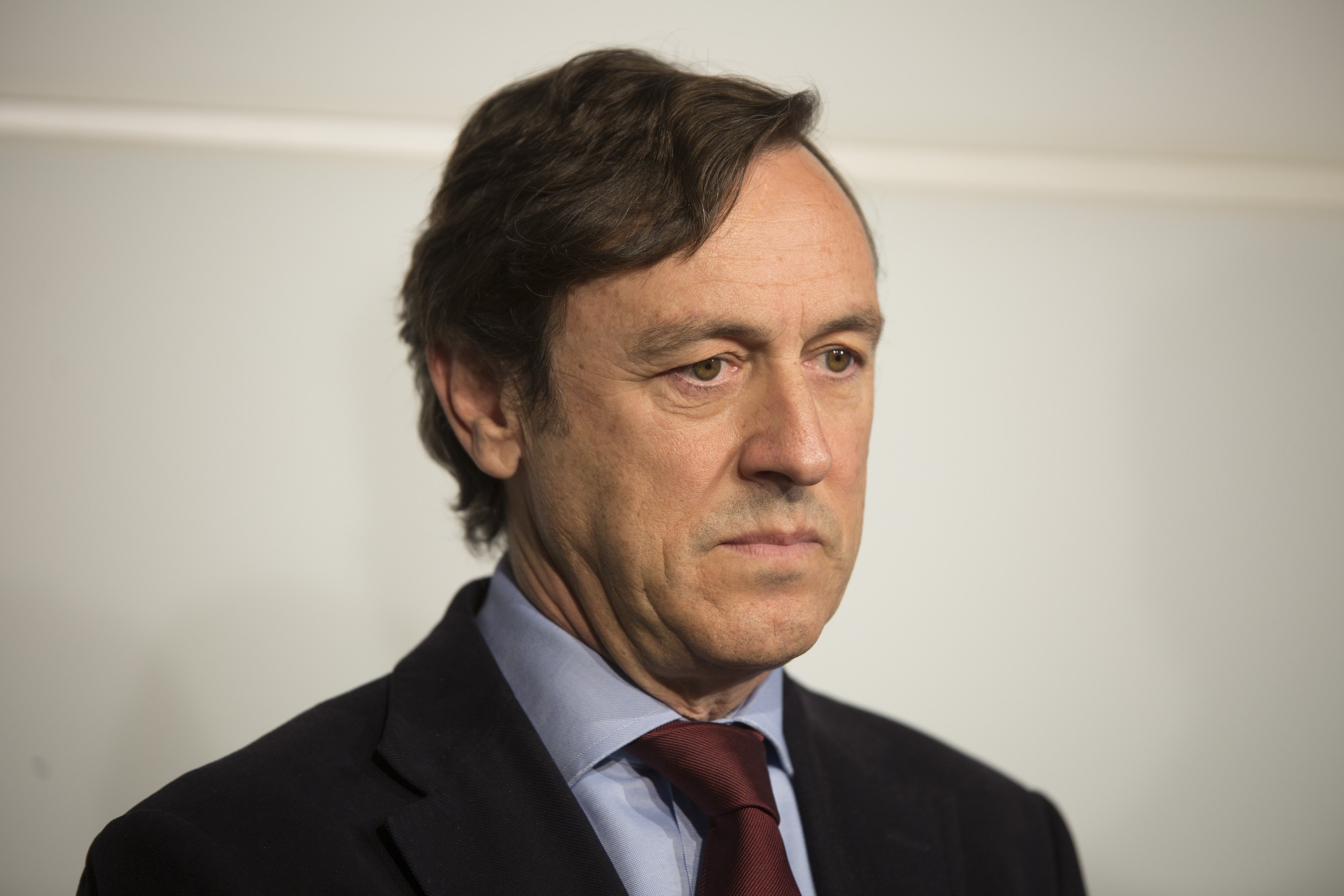The PP (Popular Party) in power in Madrid has "for time and legal reasons" rejected starting the procedure to apply article 155 of the Spanish Constitution to Catalonia, an article which opens the door to the suspension of its autonomy. Instead, they are committing themselves to other "more appropriate and realistic" means to attempt to prevent the independence referendum being held on 1st October.
This was announced by the party's spokesman in the Spanish Congress, Rafael Hernando, in an interview with Europa Press. Hernando explained that resorting to this article "at this time" would not be useful, neither for reasons of time nor for legal factors. With this statement, Hernando ends the possibility of the PP using its absolute majority in the Senate to pass the first ever use of the article, which allows for the governments of autonomous communities to "be forced" to "fulfil" their obligations, although the article doesn't define how this would be done.
The procedure regulating the Senate's use of this article requires the Spanish Government to send the chamber's president a proposal with the specific measures planned which then have to be debated in the General Commission of Autonomous Communities. The commission has to ask the president of the autonomous community in question, in this case Catalonia's Carles Puigdemont, to respond to the allegations it believes are appropriate. Once this formality has been carried out, the final proposal should be voted on in the Senate's plenary assembly, where the PP has an absolute majority.
"More appropriate and realistic" options
But Hernando discards this path: "For reasons of time and legal practice, at this time, article 155 would not solve the problem", said the spokesman, going against those who are already calling for this procedure to be started before the referendum is formally convened. Hernando understands that there are "more appropriate and realistic" measures and that it is the responsibility of the courts to respond to noncompliance with the law and to decide if crimes have been committed like that of sedition, an uprising against the legal order.
In any case, the PP leader wanted to make it clear that the weight of the law "ends up falling on" those who do not obey the rules and noted that there are already political leaders like former Catalan president Artur Mas and the former minister Francesc Homs who have already been convicted for their roles in the unofficial referendum on 9th November 2014: "If anybody wants to continue shooting themselves in the foot, they can continue on this path," he warned. Asked about the use of force to avoid the offering of ballot boxes on 1st October to hold a referendum like in 2014, the parliamentary spokesman replies that the state has "different mechanisms" to defend itself and to ensure that no referendum is held: "There will not be a referendum," he insisted.
The Catalan police, security force of the state
"It is necessary to act prudently, but forcefully and that is what will happen. The 'state of law' has certain rules and we have to respect them all, they aren't rules to pick and choose from, rules you can have exemptions from, which is what some claim" he added. On the same topic, Hernando stressed that the security forces and corps of the state will respect the state of law and points out that the Mossos d'Esquadra, the Catalan police, are part of this group as well as the Ertzaina, the Basque police.
The spokesman assures that he doesn't know if the Catalan government already really has ballot boxes for 1st of October and an electoral roll, but he believes that these "material elements" are not the most important factors. "They are only means to continue going further in a direction, confrontation and the mutilation of the right of the citizens who live in Catalonia to be Spaniards and Europeans," he said.
The CUP has the Catalan government on its knees
Hernando trusts that the Catalan Parliament won't process the law for the referendum, a bill that is not currently included in the agenda for the Parliament's Board this Wednesday: "It would be regrettable for the Board to continue with this process, it has to finish now," he said. He believes that the "problem" is that the CUP (Popular Unity Candidacy), with ten deputies of the 135 that make up the Parliament, is the party that "imposes the conditions" and really governs in Catalonia, "pushing to its knees" the Catalan executive.
"An anarchist group, of totalitarian cut, is who rules there and with few votes determines what ERC (Catalan Republican Left) and PDeCAT (Catalan European Democratic Party) have to do", said Hernando. In any case, the parliamentary spokesman defends the work of the Spanish government "in the face of the nonsense from the independence supporters of Catalonia", says that measures have been taken and he responded to the accusation of inaction from the PSOE (Spanish Socialist Workers' Party). "We have been working for a long time but PSOE hasn't realised it. When you get caught up in internal problems, you don't notice what others are doing," he concluded.

